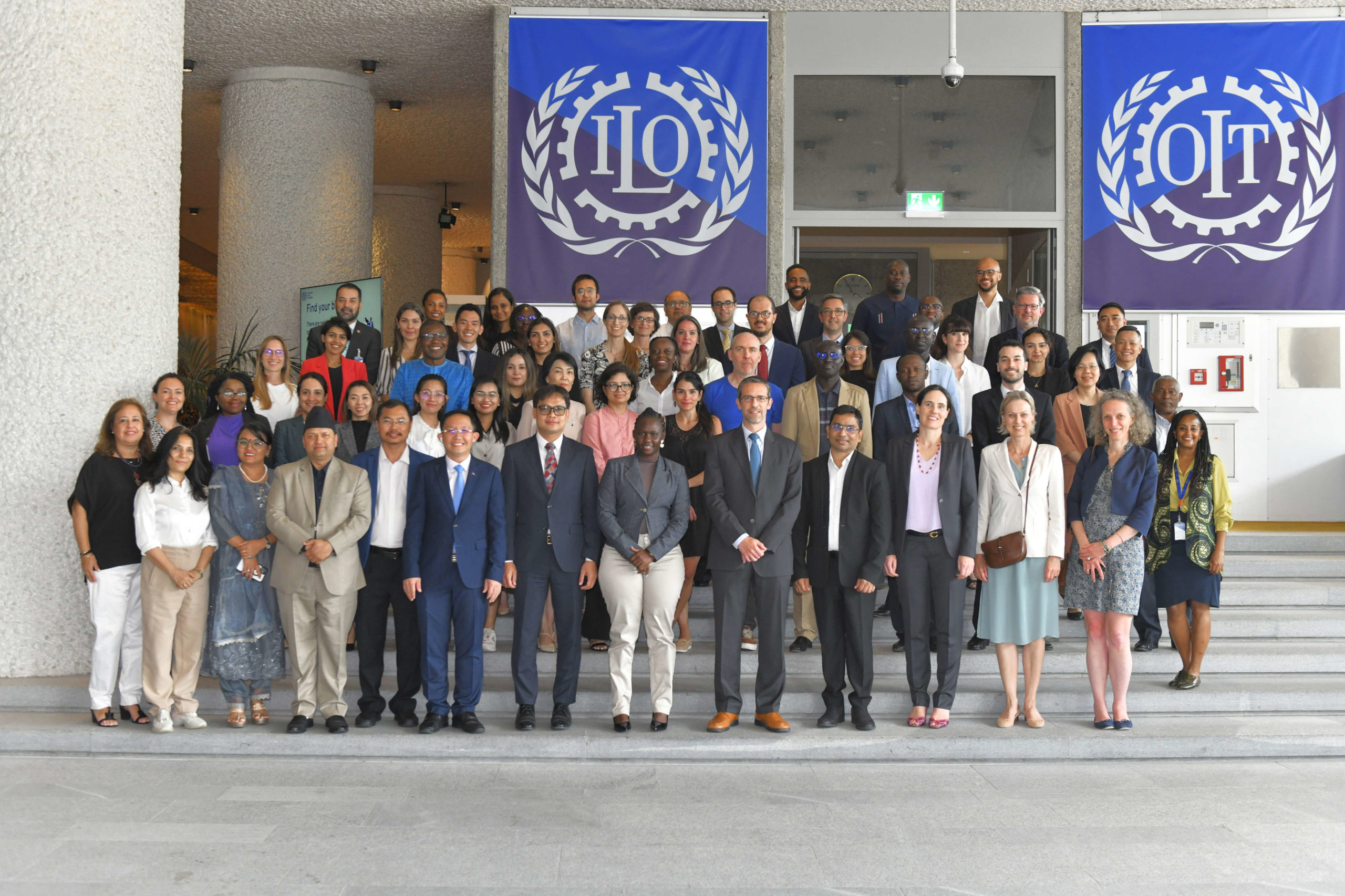
Attendees of the SP&PFM International symposium in Geneva
The symposium showcased several of the Programme’s most unique approaches, emphasizing the importance of rights-based social protection systems that prioritize gender responsiveness, disability inclusivity and resilience in the face of unexpected shocks.
In Senegal, for instance, the SP&PFM country project helped reduce energy subsidies and redirect resources towards increasing family benefits. This innovative approach empowered 316,000 households to achieve greater financial stability and invest in their well-being. Meanwhile, Kyrgyzstan increased social protection for 212,000 persons with disabilities by increasing its share within the national budget, after strong advocacy by the SP&PFM country project.
New social protection laws, and reforms of existing schemes have also led to enhanced coverage in many countries. For example, Togo increased legal coverage ten-fold, with 3 million people now legally protected for health. Meanwhile, Nepal increased social protection coverage by 38% by reaching over 230,000 workers in the informal economy, while also their child grant programme.
The programme played a critical role in supporting countries to respond to the economic impacts of the COVID-19 pandemic as well as in making social protection systems more resilient in to confront future crises. In Cambodia, for example, the programme supported the design and implementation of temporary cash transfers, providing income support to 700,000 poor and vulnerable households.
At the same time, longer-term responses to crises were also initiated, for example through the design and reform of unemployment protection in Peru and Ecuador respectively, helping ensure social protection systems can support people in the context of future crises, be they environmental, epidemiological economic, or societal.
Key to the programme’s success was the increased coordination between Ministries of Finance and Ministries in charge of social protection, as well as the effective participation of employers and workers organizations, and civil society in the design, financing and governance of social protection schemes and programmes.
Read the press release here or see the event page here.
